Here is the Volume 2 of Volleyball from When you watch something, visit us first! Mr. Futoshi TERAMAWARI, General Manager of #PFUBlueCats Ishikawa Kahoku, told us about the importance of mental condition in Volleyball this time. This is the combined version of Part 2-1 through 2-4 on our YouTube channel.
In Vol.1, we learned about the “structure” of Volleyball.
This time, we interviewed Mr. Futoshi TERAMAWARI, who was Head coach of Men’s Volleyball National team as well as Team Manager of Women’s Volleyball National Team, and is currently General Manager of PFU Blue Cats Ishikawa Kahoku, a member of DAIDO LIFE SV.LEAGUE WOMEN, about the importance of mental condition in Volleyball.
We hope you will find this information useful when watching games.
.png)
Part 2-1: Mental, Skill and Physical
What I really want to emphasize is, since we often say that the balance between mental, skill and physical is very important, mental, skill, and physical, and in my opinion, 80 to 90 percent is mental.
Especially for upper level players. The reason is that players who have reached that level are trained both technically and physically.
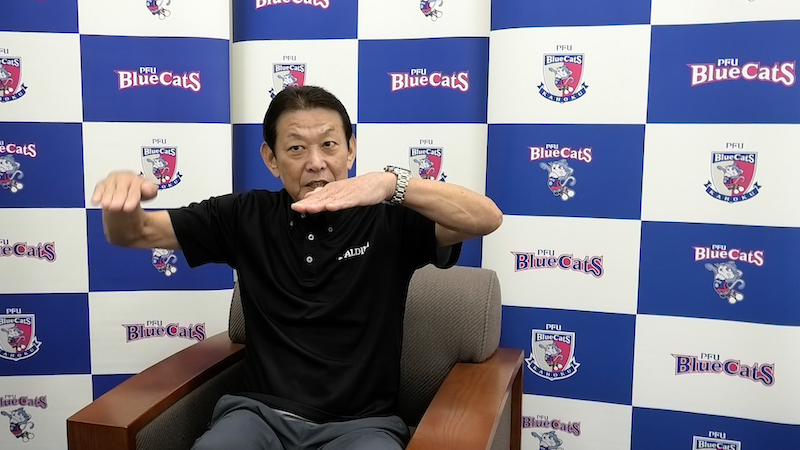
They have a strong mentality that supports their technique. And their physical strength is also powered by their strong mentality. When a game starts, they have the mentality to think that their team will never lose. It is important to be able to fight with confidence, for example, they have already prepare a concrete game plan.
I think that the team has the mentality to never get discouraged and stay positive no matter what the situation of the game is. Even if the opponent scores a point, they can think that they do not lose yet. It is important to have a mind that they can still play on.
Q: Players who are in such mental condition definitely play well, aren’t they?
Such players think that the sets should be brought to them most of every time. For example, there are times when Mr. (Yuji) NISHIDA is doing so well that his attacks are almost always successful.
*Mr. Yuji NISHIDA: One of the core players in Japan National Team, who was participated in Paris Olympic.
In such a situation, I think Setter should just deliver him all sets. If possible, until his attack is blocked. Because his attacks are successful in already 60 to 70%. Players in such condition are in a “beast mode.”
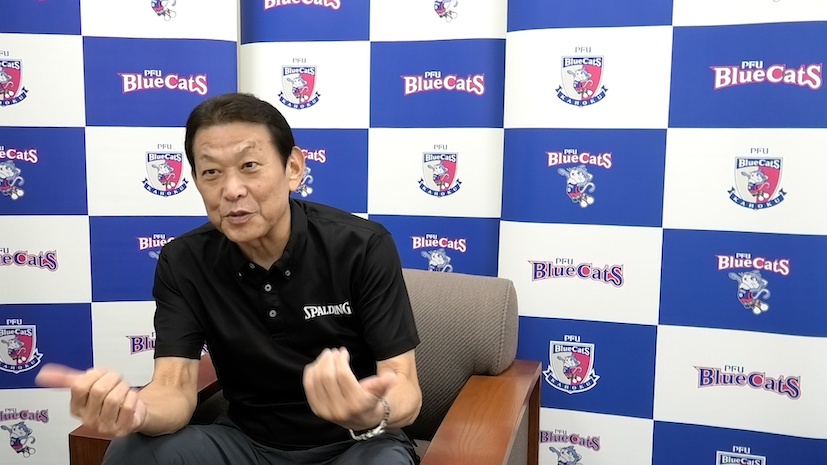
Therefore, if a team has some players in such mode during a game, the team is very strong. It is Setter (S) and coaches in the bench to find such players during a game.
Q: How does the momentum shift when such player get blocked cleanly?
If S dare to make that player attack once more and the next attack is successful, it is OK. But if the opponent defends his two consecutive attacks, the situation becomes much more difficult immediately. That is what is interesting, when we are watching games. It is a mutual fight by both teams.
And the opponent’s blocks are also gathered on the player who is doing well. But even so, ofter such player attacks well and scores. So, looking at those points, we can see that the momentum is not good for a team, so other players must work hard. From that point of view, S of current Japanese men’s volleyball team, Mr, (Masahiro) SEKITA, is setting well.
*Mr. Masahiro SEKITA: Setter of Japan National Team, who was participated in Paris Olympic.
I think that when we watch a game aimlessly, we often miss mental aspects. So I recommend to watch volleyball games while imagining the mentality of the players in your mind. Would this player be upset or not now? This player is in great form. How does it work if S just deliver all sets to this player?
Therefore, Coaches look at the good and bad performances, as well as the mentality of players on both teams. They may notice that that player is mentally bad now. Or, that player is feeling weak right now.
So, in Volleyball, it is possible to change the momentum of the game, for example, by changing the member. So if you change the way of watching Volleyball, I think it really becomes extremely interesting.
Rather than just watching whether the attack was successful or not, or whether the attacker made a mistake, I would recommend to watch it thinking why the dig went well. It is interesting to think about why the play was played the way it was. I also think about how that player is upset.
I think you can enjoy Volleyball much more if you watch a game while imagining the mentality of players in your own way.
Part 2-2: Momentum in Volleyball
Q: What do you consider what momentum is in Volleyball?
You may often hear that players saying “now, it is our time.” At such times, they feel that they are in advantageous mental conditions.
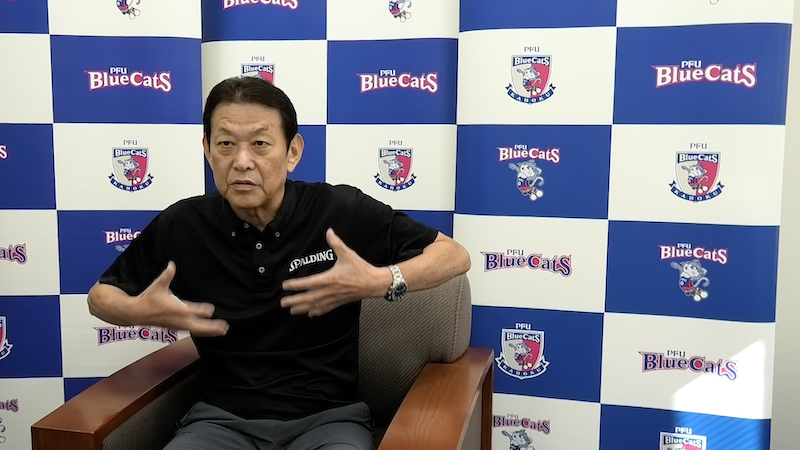
But there are also situations where the opponent somehow manages to endure such cases and catch up by taking side-outs. Players can feel momentum when they are playing a game. Sometimes, when we are catching up, the opponent gets consecutive points.
The reverse often happens. Even when a team have the advantage over the opponent, but the opponent follows the team, and if they score several points and suddenly get momentum. I think that is what momentum is.
In Volleyball, when both teams repeated side-outs, it is a situation where the initiative is indefinite. When either team scores three points in a row, the momentum changes.

There are teams that are affected by the opponent’s consecutive points, as well as teams that are able to suppress them and feel there are no problem at all. The difference is also from mental conditions.
So it is true that the actual play creates the momentum, but how such momentum changes is greatly affected by the players’ feelings afterwards. With a “turbulence” of the momentum.
I think that teams with a strong mentality may not be affected too much by consecutive points by their opponents. Some teams get very upset when their opponent scores in a row, and their play gets worse and worse.
Q: So they do not have to give up even if the momentum is not good at some while?
Yes, it is true. So some players do not get upset when their opponents’ defense shuts down their attack. They think it’s all right and no problem at all. The player who has a strong mentality that because he missed his spike when his attack was stopped, and that he will be able to succeed at the next time when the another set comes. It is the teams with strong mentality that really make it happen.
On the other hand, there are teams that fall into a vicious cycle of being attacked again by the opponent because they are upset and hit a weak spike, even though such attacker says to deliver another set to him after their attack is shut down. This is truly critical.
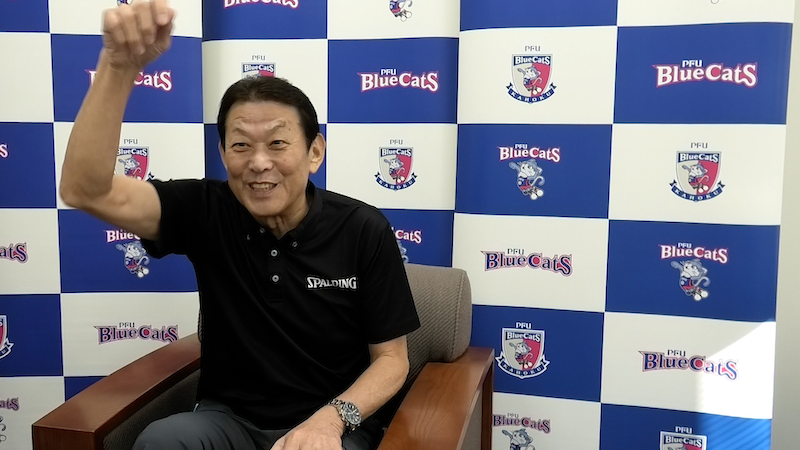
So I think it is necessary to work on the mentality in practice and in games and become stronger.
Q: How do you think about the uncertainty of having to hit the ball instead of holding it in Volleyball?
Also one player cannot touch the ball twice in a row. Volleyball is a sport where players must always leave the ball to the another player.
I think that’s why the momentum of Volleyball can easily change. There are many factors in Volleyball that affect the momentum of the game. An attacker hits a spike as hard as he can and the opponent blocks it perfectly, and the team is completely upset. Completely upset, aren’t they? And the opponent gets very excited. And the team feels like they have been beaten.
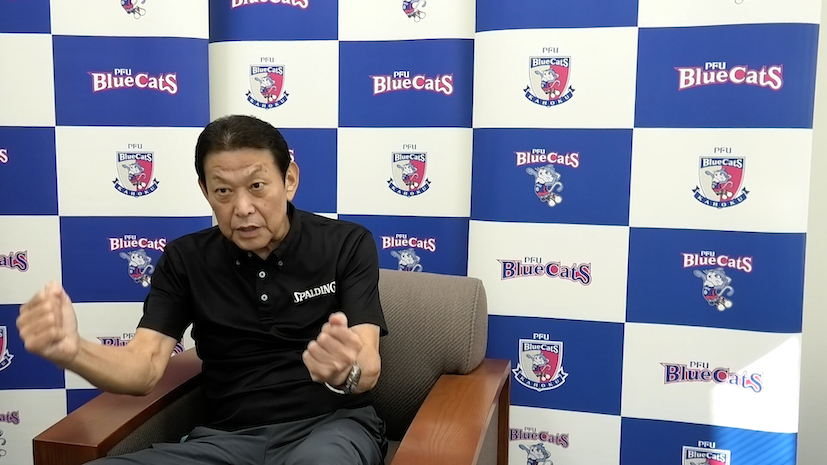
There is a lot of that element in Volleyball. When a player hits an aggressive serve, and the opponent completely misses the reception, the team can feel very well. That’s when they get excited.
I think volleyball is a sport with many elements like that. Each rally is a mutual fight between the two teams as the offense and defense switch rapidly.
So the mentality is really close to the momentum. One play can change the momentum of the game. I think that’s why Volleyball is very interesting.
Part 2-3: Mentality and Momentum
Q: Does mentality affect very much the momentum of Volleyball?
Yes. Very much. For example, there are cases where a set that should have been ours goes to the opponent due to mentality. In contrary, there are times when we were able to win a set because our opponent made a mistake because of their mentality. There are quite a few games like that. As we have played so many games.
Now, suppose this player of this team hits several serves to this player. And, this team breaks, that is, the team that hit the serve scores a point. Then, the next serve goes to this player again. And, this player’s reception is not well and serving team breaks again. This team is hitting very good serves.
And if the next serve goes to this player and his reception is bad, he shall lose a lot of confidence. The opponent’s serve is good, but he will feel that he is being targeted. In such a situation, and as this player is no longer calm, but if the next serve goes over significantly, which will put this player a good mental condition. It also creates a good atmosphere for the opponent team.
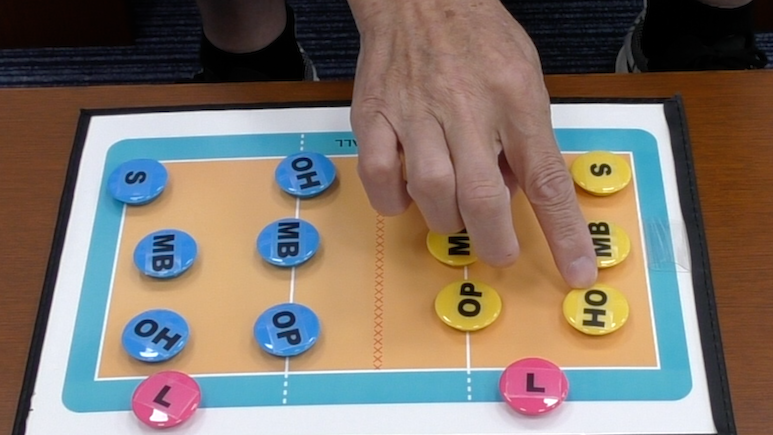
Even in a situation where unless we do not miss in a serve, the mentality of the opponent will break down, but sometimes we do miss.
This is the effect of mentality. So if our team misses a serve when the opponent is in a bad mood, the opponent will feel good. On the other hand, our team feels very bad. That kind of mentality. It is difficult to explain. Actually, there is such a thing as mental advantage or disadvantage. They look never mind it, of course. All the players do.
For example, regarding the attackers, when he is able to hit a spike in a good condition and he thinks that his spike may not be blocked even with the opponent’s two blocks, if his angled attack is blocked, it is very damaging to him. And that’s where he gets upset. Not a little.
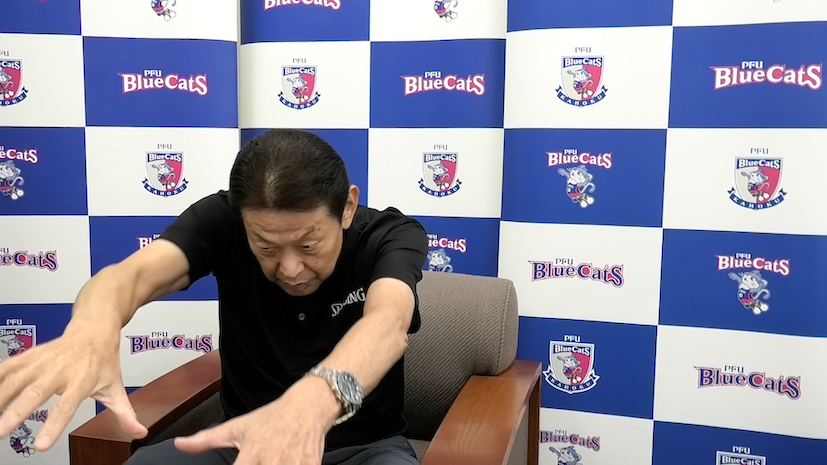
One opponent’s shut out or one opponent’s serve point. There can be many other situations. Like touching the net. In such a situation, it is impossible to be normal and calm. And for the opponent, that means that they will be able to take advantage. There are many such cases.
Q: Sometimes players get timid and are not able to hit spike hard, and does that affect the momentum?
Yes. Very much. In short, the attacker is already scared. So that is mental, too.
After 20 points of the set, the attacker feels scared because the opponent’s blocks come, and he hits a weak spike to avoid being shut out, and it is received as a matter of course. This can already be called a mental effect.
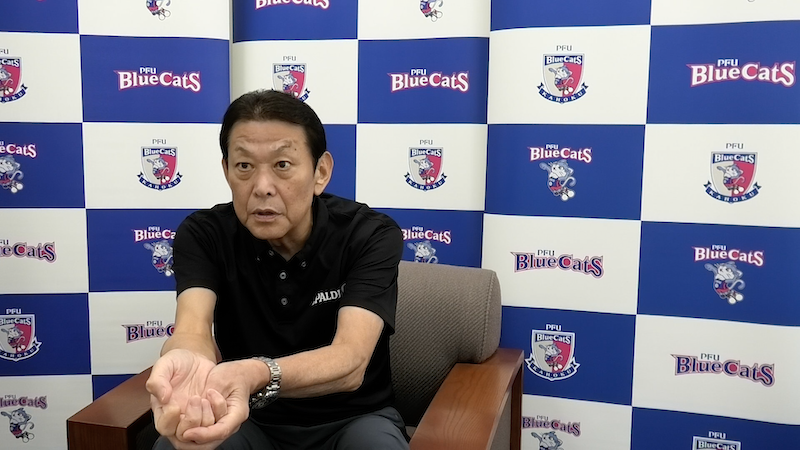
And when we are watching the games, we can notice that the attacker hits a spike with a weak mind. You may recognize whether the spike was intended to break the opponent with a half shot and get another chance to attack, or the spike was just with a weak mentality. It’s a little tough for players in that situation.
In modern Volleyball, I think mentality plays a bigger role than skill and physical when the game is in a mutual fight after 20 points in a set.
I think Volleyball is a very sensitive sport, and the mental aspect changes the game a lot. So I think it is interesting to watch games while being aware of such aspect.
I think it is very interesting to watch Volleyball games while focusing the mentality of players as well as anticipating where the next set will be delivered.
Part 2-4: When the momentum shifts
Time Out
Q: Are time outs taken by Coach’s mainly aimed at controlling the momentum of the games?
Tes. When the momentum is about to shift to the opponent. And when it has shifted to the opponent as well as when the players are physically tough. Coaches Take a Time out when they want to stop the momentum of the opponents. Stopping the momentum is most important.
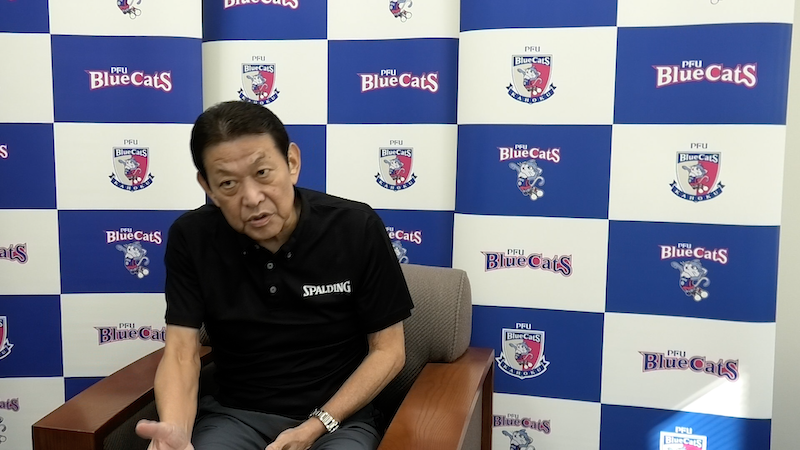
They also take Time outs when they want to give the players spot-on advice. Like, the game is in such a situation, so we are going to play in this way. Coaches use Time outs for such purpose. Basically, Coaches take Time outs when they think the situation is bad and danger, so their instruction must not be like “do your best!”
Basically, they must make players realize that they are in a critical situation. Coaches tell them to get the momentum back to themselves.
Q: Is there any “improper” way to take Time out?
When Coaches think about whether or not to take a Time out, they are already aware that the momentum has shifted. But some coaches leave the response to the players. They are always watching the game, so they should know that the momentum is shifting now. If they are normal coaches. Some coaches miss the chance to take a Time out, give up another point to the opponent, and take a Time out then.
This is a very common case. Sometimes players get a side out even if the momentum is shifting to the opponent. But in many cases, if coaches do not take a Time out at the proper timing, they give the momentum away.
However, it is a big mistake not to take a Time out when they should. Basically, Coaches must take a Time out as early as possible when they feel that the momentum of the game is not good, and that it has shifted to the opponent. This is an ironclad rule.
The only things the bench can do is to take a Time out and to change players. If that is the case, the coaches should devote all their energy to those. After that, the players to do their best. The role of the bench is to break and shift the momentum of the opponent.
It is important to do this in a calm and properly. That is why it is important to take a Time out or to change members of the team in proper way. This is the job of the bench.
Technical Time Out
Q: How do you think about Technical Time out (TTO) which is no longer in place?
I think there should be no Technical Time outs. When there will be the Technical Time out at 8th points, and if the opponent scores the 7th point and the momentum is shifting to the opponent, but Coach decides not to take a Time out because the Technical Time out is coming, the opponent really scores next point and it becomes the Technical Time out.
When a team is competing at 12 points to 12 points and the opponent scores 13th, 14th and then 15th points, it is usually a situation where Coach should take a Time out. As they lose three consecutive points. But because there is a TechnicalTime out at 16th points, Coaches may think about not taking a Time out. My point is that this is not a good way.
I don’t think the Technical Time out is necessary.
Challenge
Q: How do you think about Challenge that have been introduced in recent years?
I think the Challenge system is good. It doesn’t take long to get results anymore. And judging the ball in and out is no longer a matter of Challenge.
So it depends on the method of Challenge. If the results are immediate, like in the Olympics, I think Challenge is very effective.
However, if the results are late, if the suspicious judges are made, or if the audience feels that the challenge takes too long, as in the current V League Challenge, I don’t think it is a good idea.
That is the way I think about Challenge. But the Challenge itself is fine with me. I do not deny it. Now is the times that we should use Challenge.
Whether the block was one touch or not. The current play is one touch. It makes everyone feel that it is clear. I think the challenge is very good.
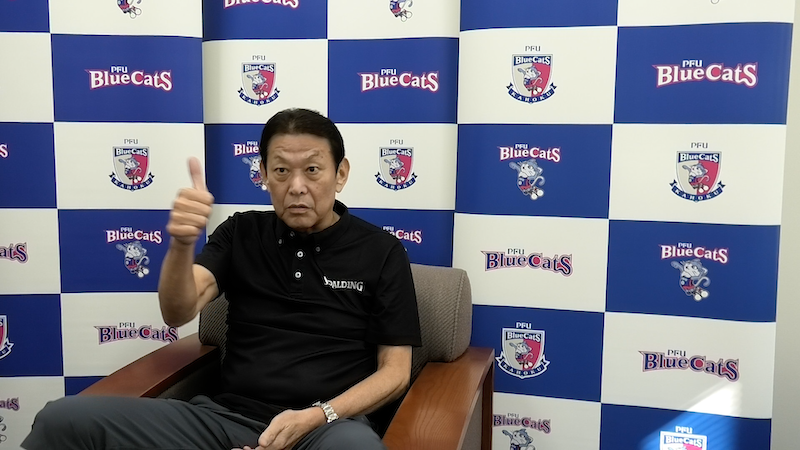
Share this content:
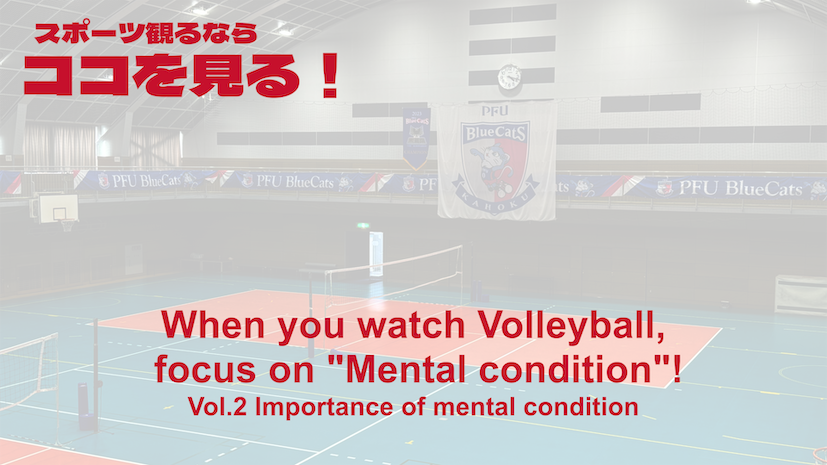
コメントを残す